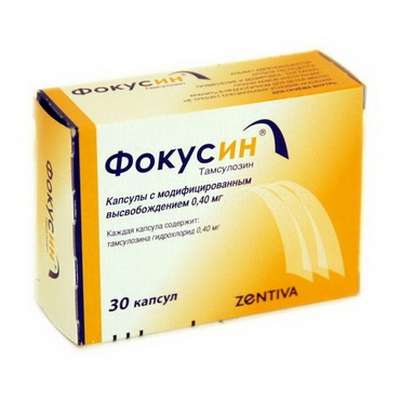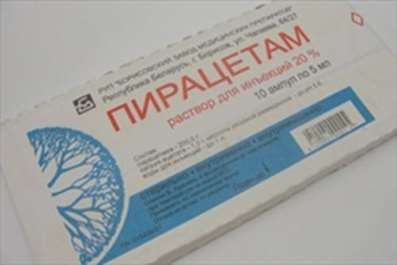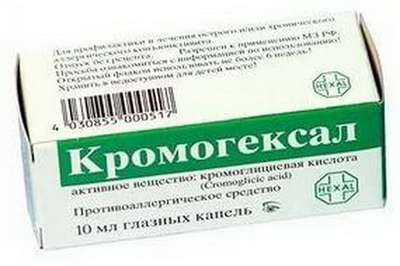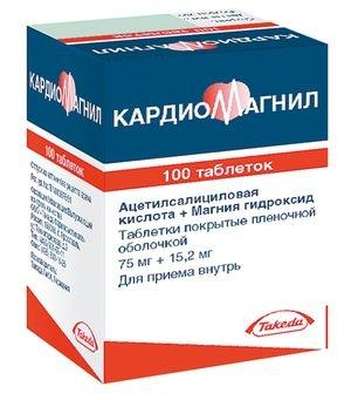Instruction for use: Tofisopam
I want this, give me price
The Latin name of the substance Tofisopam
Tofisopamum (genus. Tofisopami)
Chemical name
1- (3,4-Dimethoxyphenyl) -5-ethyl-7,8-dimethoxy-4-methyl-5H-2,3-benzodiazepine
Gross formula
C22H26N2O4
Pharmacological group:
Anxiolytics
The nosological classification (ICD-10)
F10.3 Abstinence: Alcohol withdrawal syndrome; Abstinence syndrome; Abstinence syndrome with alcoholism; Abstinence; Alcohol abstinence; Alcohol withdrawal status; Alcohol withdrawal syndrome; Postabstinctive disorder; Post-abstinence condition; Hangover syndrome; Abstinence syndrome; Alcohol abstinence syndrome; Alcohol withdrawal syndrome; Abstinence condition
F10.4 Abstinent state with delirium: Alcoholic delirium; White fever alcoholic; Delirium; Delirious condition with alcoholism and drug addiction
F11 Mental and behavioral disorders due to use of opioids: heroin addiction; heroin addiction; Diagnosis of opioid dependence; Dependence on opioids; morphine withdrawal; Opiate withdrawal; opium addiction; Opioid dependence; Opioid addiction; Behavioral disorder and postabstinentnom for drug dependence
F32.0 Depressive episode of mild degree: Nervous exhaustion with depression
F40.2 Specific (isolated) phobias: Claustrophobia
F41.1 Generalized anxiety disorder: Generalized anxiety disorders; Generalized alarm; Phobic neurosis; Anxiety reaction; Anxious neurosis
F43.1 Post-traumatic stress disorder: Combat fatigue; Catastrophe Syndrome; The survivor's syndrome; Traumatic isolation; Traumatic neurosis; Traumatic syndrome; Post-traumatic stress disorder
F43.2 Adverse Reactions Disorder: Mental Adjustment Disorder
F45 Somatoform disorders: Psychosomatic disorder; Psychosomatic disorders; Psychosomatic diseases; The state of excitement in somatic diseases; Functional psychosomatic disorders of the cardiovascular system
F48 Other neurotic disorders: Neurosis; Neurological diseases; Neurotic disorders; Neurotic condition; Psychoneurosis; Anxious-Neurotic Conditions; Chronic neurotic disorders; Emotional reactive disorders
F60.3 Emotionally unstable personality disorder: Mood swings; Mental lability; Emotional fence; Emotional detachment; Mood Change; Lability of mood; Instability of emotional background; Mixed emotional disorders; The state of emotional stress; Emotional lability; Emotional tension; Emotional instability; Emotional instability; Mood disturbance; Mood disorders; Decreased mood; Deterioration of mood; Mood swings
N94.3 Premenstrual tension syndrome: Pronounced premenstrual syndrome; Menstrual psychosomatic disorder; Menstrual syndrome; Premenstrual tension; Premenstrual status; Premenstrual period; Premenstrual syndrome; Menstruation syndrome
N95.1 menopausal and menopausal status of women: Atrophy of the mucosa of the lower genital tract, caused by estrogen deficiency; Vaginal dryness; Autonomic dysfunction in women; gipoestrogeniya state; Deficiency of estrogen in menopausal women; Degenerative changes of the mucous membrane in the menopause; Natural menopause; an intact uterus; climacteric; Menopause women; Menopause in women; menopausal depression; Climacteric ovarian dysfunction; Menopause; Climacteric neurosis; Menopause; Menopausal symptoms complicated psychovegetative; Climacteric syndrome; Climacteric vegetative disorders; Climacteric psychosomatic disorder; menopausal disorders; Menopausal disorders in women; menopausal condition; Climacteric vascular disorders; Menopause; Menopausal vasomotor symptoms; menopausal period; Lack of estrogen; Feeling the heat; Pathological menopause; perimenopause; menopause; postmenopausal; Premature menopause; premenopauznom period; tides; hot flashes; flushing in the Meno and postmenopausal; Hot flashes / hot flashes in menopause; Heart attack during menopause; Early menopause in women; Disorders of menopause; climacteric syndrome; Vascular complications of menopause; Physiological menopause; Estrogendefitsitnye state; premature Menopause
R07.2 Pain in the heart: neuroses of the heart; Myocardial ischemic pain; Pain syndrome in myocardial infarction; cardialgia; cardioneurosis; Cardiac syndrome; Pain in cardiac patients; Cardialgia on background dyshormonal myocardial dystrophy; Functional cardialgia; Psevdostenokardiya; pericardial pain
CAS Code
22345-47-7
Characteristics of the substance Tofisopam
"Daytime" anxiolytic agent, atypical derivative of diazepine (2,3-benzodiazepine). White with a yellowish tinge of crystalline powder. Almost nerastvorim in water, it is difficult soluble in alcohol.
Pharmacology
The pharmacological action is anxiolytic.
Interacts with benzodiazepine receptors, increases the sensitivity of GABA receptors to the mediator, enhances GABA-mimetic processes in the central nervous system. It has anxiolytic activity, practically not accompanied by sedative, myorelaxing and anticonvulsant action. It has vegetative stabilizing and stress-protective action, it expands coronary vessels. Especially effective with somatic symptoms of anxiety.
When ingested quickly and almost completely absorbed from the gastrointestinal tract, Cmax in the blood is reached within 2 hours, after that the concentration in the plasma decreases monoexponentially. T1 / 2 is 6-8 hours, the resulting products of biotransformation of anxiolytic effect do not exert. It is excreted mainly with urine (60-80%) in the form of glucuronides, 20-30% is excreted with feces. Do not cumulate.
Application of substance Tofisopam
Neuroses and neurosis-like conditions; conditions accompanied by emotional stress, autonomic disorders, moderately pronounced fear, apathy, decreased activity, obsessive experiences; reactive depression with mild psychopathological symptoms; post-traumatic stress disorder; disorder of mental adaptation; cardialgia (monotherapy or in combination with other drugs), climacteric syndrome (monotherapy, and also in combination with hormonal drugs); premenstrual tension syndrome; myasthenia, myopathies, neurogenic muscular atrophies and other pathological conditions with secondary neurotic symptoms, when anxiolytics with pronounced myorelaxing action are contraindicated.
In narcology: alcohol withdrawal syndrome, delirious states (to relieve agitation and vegetative symptoms), opioid withdrawal syndrome and postabstinent condition. Neurotic, psychopathic disorders with alcoholism, as well as conditions characterized by apathy, decreased activity in alcoholism.
Contraindications
Hypersensitivity (including to other benzodiazepines), psychoses and psychopathies with marked psychomotor agitation, aggressiveness or deep depression; decompensated respiratory failure, respiratory arrest syndrome in a dream (in anamnesis), simultaneous application with tacrolimus, sirolimus, cyclosporine; pregnancy (I trimester), breastfeeding, age to 18 years.
Restrictions on the use
Decompensated chronic respiratory distress syndrome, acute respiratory failure in history, angle-closure glaucoma, epilepsy, organic brain damage (e.g., atherosclerosis).
Side effects of Tofisopam
From the nervous system and sensory organs: headache, psychomotor agitation, irritability, aggressiveness, increased excitability, sleep disorder; sometimes confusion, convulsive seizures in patients with epilepsy.
On the part of the respiratory system: respiratory depression.
On the part of the digestive tract: decreased appetite, nausea, dry mouth, gastralgia, dyspepsia, increased gas separation, constipation; in some cases - congestive jaundice.
From the musculoskeletal system: muscle tension, muscle pain.
Allergic reactions: skin itching, exanthema.
Interaction
The combined use of tacrolimus, sirolimus, cyclosporine with tofisopam is contraindicated.
Plasma levels of drugs that are metabolized by CYP3A4 may increase with simultaneous admission to the tophosome. Deprimiruyuschie means increase (mutually) oppression of the central nervous system. Inducers of hepatic enzymes (alcohol, nicotine, barbiturates, antiepileptic drugs) can enhance the metabolism of tofisopam, which can lead to a decrease in its concentration in the blood plasma and a weakening of the therapeutic effect.
Some antifungal drugs (ketoconazole, itraconazole) can slow the hepatic metabolism of tofisopam, which leads to an increase in its concentration in the blood plasma. Some antihypertensive drugs (clonidine, BCC) can enhance the effects of tofisopam. Beta-blockers can slow the metabolism of tofosopam, but this effect has no clinical significance. Benzodiazepines can affect the anticoagulant effect of warfarin. Long-term use of disulfiram can inhibit tofisopam metabolism. Antacids can affect the absorption of Tofisopam. Metoclopramide accelerates the onset of the effect (increases the rate of absorption due to increased intestinal motility). Cimetidine and omeprazole inhibit tofizopam metabolism. Oral contraceptives can reduce the intensity of tofosopam metabolism. Tofisopam can increase the level of digoxin in the blood plasma.
Overdose
Symptoms: deep sleep, in severe cases (after taking doses of 50-120 mg / kg) - vomiting, confusion, coma, respiratory depression and / or epileptic seizures.
Treatment: recovery of respiratory function and cardiovascular activity.
Routes of administration
Inside.
Precautions for the substance Tofisopam
If there is an allergic reaction or serious sleep disorders, you should stop taking it. To prevent a sleep disorder, it is recommended that you take the drug no later than 15-16 hours.
It should be noted that in patients with mental retardation, elderly patients, as well as those with impaired renal and / or liver function, side effects may be more likely than other patients.
It is not recommended to apply tofisopam for chronic psychosis, phobia or obsessive conditions. In these cases, the risk of suicidal attempts and aggressive behavior increases. Therefore, tofisopam is not recommended as a monotherapy for depression or depression accompanied by anxiety.
Care must be taken when treating patients with depersonalization, as well as organic brain damage (eg, atherosclerosis). Continuous medical supervision is required when appointing patients with myasthenia gravis.
In patients with epilepsy, tofisopam may increase the threshold of convulsive readiness.
Tofisopam does not cause a significant decrease in the ability to concentrate. The question of the possibility of controlling vehicles is decided after assessing the patient's individual response to the drug.

 Cart
Cart





